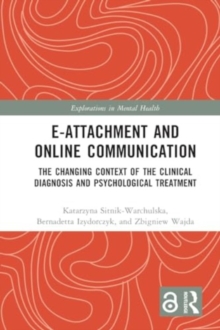
Brain Evolution, Language and Psychopathology in Schizophrenia PDF
Edited by Paolo (Policlinico Universitario, Udine, Italy) Brambilla, Andrea Marini
Part of the Explorations in Mental Health series
Description
This book provides a comprehensive review of new developments in the study of language processing and related neural networks in schizophrenia by addressing the complex link between psychopathology, language and evolution at different levels of analysis.
Psychopathological symptoms in schizophrenia are mainly characterized by thought and language disorders, which are strictly intertwined.
In particular, language is the distinctive dimension of human beings and is ontologically related to brain development.
Although normal at the levels of segmental phonology and morphological organization, the speech of patients suffering from schizophrenia is often characterized by flattened intonation and word-finding difficulties.
Furthermore, research suggests that the superior temporal gyrus and specific prefrontal areas which support language in humans are altered in people with schizophrenia.
Brambilla and Marini bring together international contributors to explore the link between brain evolution and the psychopathological features of schizophrenia, with a focus on language and its neural underpinnings.
Divided into three sections the book covers: • brain evolution and language phylogenesis• brain abnormalities in schizophrenia • psychopathology and schizophrenia.
This theoretical approach will appeal to professionals including clinical psychologists, cognitive neuroscientists, neuropsychiatrists, neuropsychologists, neurolinguists, and researchers considering the links between brain evolution, language and psychopathology in schizophrenia.
Information
-
Download - Immediately Available
- Format:PDF
- Pages:264 pages, 1 Tables, black and white; 9 Line drawings, black and white; 9 Illustrations, black and w
- Publisher:Taylor & Francis Ltd
- Publication Date:12/11/2013
- Category:
- ISBN:9781134694358
Information
-
Download - Immediately Available
- Format:PDF
- Pages:264 pages, 1 Tables, black and white; 9 Line drawings, black and white; 9 Illustrations, black and w
- Publisher:Taylor & Francis Ltd
- Publication Date:12/11/2013
- Category:
- ISBN:9781134694358










